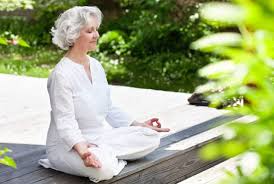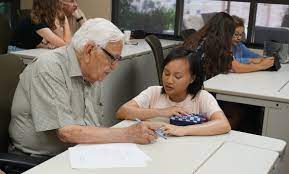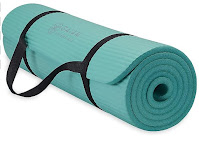We've talked about this topic on several other occasions, but I cannot stress the importance of keeping our minds sharp as long as we possibly can. We think about the health of our bodies because we have to, but our minds are just as much a part of the entire package of self that we need to remember to keep our minds healthy also. Here are links to previous blogs about this topic if you missed them: The Importance of Intellectual Curiosity for Seniors or this one, What are the Ways to Remain Healthy and Active in Retirement or even this one, Memory and Aging: Understanding the Why's and What You Can Do About It. All of these talk about ways to keep your mind and body sharp as you age.
I've always believed that our brain, much like a fine wine, can get better with age, provided we give it the right care. So, let's chat about some fun and engaging mental activities that can help us maintain our mental acuity. Trust me, it's not all crossword puzzles and Sudoku – although those are great starts!
Brain-Teasing Puzzles:
Let's start with the classics. Crossword puzzles, Sudoku, and word searches aren't just fun ways to pass the time; they're brain boosters. They help enhance our problem-solving skills and keep our language and mathematical skills sharp. I love starting my day with a cup of coffee and a crossword puzzle. It's like a morning jog for my brain!
Learning a New Hobby:
Ever wanted to learn to play the piano? Or perhaps painting has always caught your fancy? Now's the perfect time! Learning a new skill is not just fulfilling; it's a fantastic way to keep our brains engaged and learning. It stimulates neural pathways and can even improve our memory. Plus, it's a great conversation starter with the grandkids.
Book Clubs and Reading Groups:
Ah, the joy of a good book! But why read alone? Joining a book club or a reading group can be a delightful way to share insights and engage in stimulating discussions. It's a great way to keep our critical thinking and comprehension skills sharp. And let's not forget the social aspect – it's always fun to make new friends.
Memory Games:
Remember the game 'Memory' we used to play with our kids? Turns out, it's not just for children. Playing memory-based games can significantly enhance our short-term memory and concentration skills. There are plenty of apps and online games designed for this, but even a simple deck of cards can do the trick.
Stay Socially Active:
Engaging in social activities isn't just good for our mood; it's great for our brain too. Regular conversations, be it with friends, family, or even a friendly neighbor, can improve our cognitive abilities and keep our minds sharp. So, let's not shy away from a little chit-chat – it's for our brain's good!
Physical Exercise:
Yes, physical health impacts mental health. Activities like walking, yoga, or tai chi not only keep our bodies fit but also increase blood flow to the brain, which is essential for maintaining cognitive functions. Plus, it's a great way to enjoy the outdoors and meet new people.
Meditation and Mindfulness:
In our bustling lives, our minds can get cluttered. Meditation and mindfulness practices are excellent for clearing the mind, reducing stress, and improving focus and attention. Even a few minutes a day can make a significant difference.
Remember, it's never too late to start taking care of our mental acuity. These activities are not just tasks on a to-do list; they're stepping stones to a more fulfilling, sharper, and happier life in our senior years. So, let's embrace them with open arms and a curious mind. After all, age is just a number, but our mental fitness is a journey worth enjoying every step of the way!
Stay sharp and keep smiling! I hope these ideas have sparked your brain to try out new things to keep mentally sharp.
Here are some other articles about this topic you might enjoy:


































